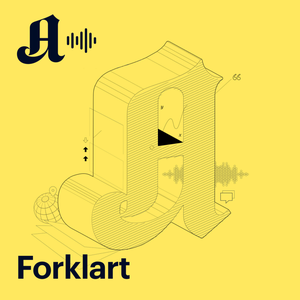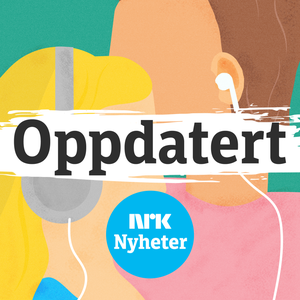
How To F#€k Up An Airport
Radio Spaetkauf
What Went Wrong at BER
- 1 hour 6 minutes"City of Tomorrow" RSxEAB
In this episode RSxEAB of Radio Spaetkauf (our spinoff series recorded in collaboration with the Europäische Akademie Berlin )we focus on the future of urban living; asking the question, “What is the city of tomorrow?”. Host Daniel Stern is joined by architect Max Schwitalla and author Aiki Mira. The conversation begins with Max sharing how skateboarding background influenced his urban design approach, and with Mira reading a passage from their award-winning novel “Neurobiest” describing Berlin of the future topped by green rooftop communities. From there we discuss visions for the future: inclusive, polycentric urban design, mobility hubs, and discarding anthropocentricism to leave space for nature. The exploration of “The City of Tommorow” brings us to innovations (both real and imagined), micro-utopias, and proposals for infrastructure which is reusable, queer and adaptable.
Recorded Oct 17, 2024 at Podigee‘s Offices in Berlin
Guest Links:
Aiki Mira https://aikimira.webnode.page/ Aiki’s Podcast: Das War Morgen Insta: @aiki_mira
Event at Otherland Books: otherland-berlin.de
Max Schwitalla https://studioschwitalla.com/
—
Radio Spaetkauf https://www.radiospaetkauf.com @radiospaetkauf
Europäische Akademie Berlin https://www.eab-berlin.eu @europaeische_akademie_berlin
Daniel Stern https://www.sterndaniel.com/ @danielandstern
Venue: https://www.podigee.com/
• DONATIONS / SUPPORT: https://www.radiospaetkauf.com/donate/
1 November 2024, 2:43 pm - 1 hour 22 minutesToilets, Sidewalks & Parks - Who Owns Berlin? RSxEAB
Public space in Berlin is used for private profit. Does that rob or enrich the citizens? From business-run toilets to footpath vehicles and food sales in parks, we share our space with commerce. Can we also use private spaces like empty malls as public property? Radio Spaetkauf partners with the Europäische Akademie Berlin to invite an intelligent panel of activists and politicians to discuss the good and bad uses of public space for commercial gain.
Sophie Menzel is a big fan of public toilets. She raises awareness of the need for more and better toilets in Berlin through the group Buschfunk Bündnis e.V., with the slogan "Fair peeing for all!" Sophie says the current privately-run toilet system isn't good enough, and is especially failing people without penises. She wants to see more "missoirs" - feminized pissoirs (urninals). More at: https://buschfunk-buendnis.com/
Tuba Bozkurt is the Green party's member for Gesundbrunnen in the Berlin parliament. She is the Green Faction's spokesperson for industry, digital economy and anti-discrimination. Tuba says some commerce should be allowed in public space, but it has to be fair and accessible for all. https://tubabozkurt.de/
Tamara Lüdke represents Lichtenberg at Berlin's Abgeordnetenhaus as a member of the SPD and is the party's spokeswoman on the topics of animal welfare, consumer protection, club culture, drug policy and development policy. Tamara says the city wants to do more to keep footpaths clear of obstacles, and is considering new ways to make toilets in private businesses open to the public. https://www.tamara-luedke.de/
Roland Stimpel is the voice of pedestrians in Berlin. Through the association FUSS (Fachverband Fußverkehr Deutschland FUSS e.V.) he advocates for better footpaths, less vehicles, stricter control of shared scooters and bikes, and safer street crossings. He says the solutions already exist, but need to be better enforced through stricter fines for infringement. More at: https://www.fuss-ev.de/
Hosted Daniel Stern: https://www.sterndaniel.com/ Hosted by Joel Dullroy: http://www.joeldullroy.com/ Editing & Mastering: Kaleb Wentzel-Fisher: www.recordedvoices.com
Hosted at House of Color, a vibrant community initiative with passion for sports, music and cultural expression, currently at a pop-up space in Gneisenaustr. https://www.hoco.world
Co-Produced by Europäische Akademie Berlin's Europe Behind The Headlines series, with kind support of the Federal Foreign Office and EU (CERV): https://www.eab-berlin.eu/europe-behind-the-headlines-2024/
Support Radio Spaetkauf: https://www.radiospaetkauf.com/donate
11 September 2024, 1:27 pm - 1 hour 21 secondsBeauty In The Streets: Graffiti & Street Art - RSxEAB
Recorded live in Grunewald, Dan is joined by guests Josefine Köhn-Haskins, Ryan Balmer, Júlia Mota Albuquerque and a handful of chirping birds to explore the significance of urban art in public spaces. In partnership with the Europäische Akademie Berlin.
Support Radio Spaetkauf: https://www.radiospaetkauf.com/donate
Guests and Links: Josefine Köhn-Haskins, Journalist: Berlin Street Art Map Ryan Balmer, Tour Guide: https://www.instagram.com/berlin_reguided Júlia Mota Albuquerque, Muralist: https://landofjulia.com/
Editing & Mastering: Kaleb Wentzel-Fisher recordedvoices.com Written, Produced and Engineered by Daniel Stern: sterndaniel.com With kind support of the Federal Foreign Office and EU (CERV) under the project “Europe Behind the Headlines”
Join us live Aug 4 at House of Color: https://www.eventbrite.de/e/radio-spatkauf-tickets-967843655427
1 August 2024, 4:01 pm - 2 hours 11 minutesMaisie’s Voice – The Last Conversation With Maisie Hitchcock
Zombies in the GDR. Deutschrap. Heavenly lakes. Joy despite cancer. Days before her death, Maisie Hitchcock and I talked for one last time. In a hospital room in London, she shared her favourite memories from her years in Berlin - and revealed a few untold surprises.
It's not all tears, because Maisie could be so funny. Her depth of knowledge about architecture, German history, music and culture is astounding. This is just a sample of her best moments from more than a decade of co-hosting Radio Spaetkauf.
Make time for this. Take a walk. Listen until the end. Be prepared to laugh and cry. And maybe Maisie will convince you to change your life.
I'm Joel Dullroy, and here I join with co-hosts Andrew Mason, Jöran Mandik and Daniel Stern to remember Maisie Hitchcock.
Thanks to our fellow Radio Spaetkauf collaborators Izzy Choksey, Matilde Keizer, Anne-Marie Harrison and Sebastian Filip. Thanks to Radio Spaetkauf listeners for sending in your favourite memories of Maisie.
More About Maisie
Maisie Hitchcock was the co-founder and co-host of Radio Spaetkauf. Hers was the first voice ever heard on the podcast, announcing it into existence in late 2011. She was also a writer, tour guide and gave classes on architecture and design. Maisie moved to Berlin in the early 2000s, drawn by an appreciation for the overlooked art and architecture of the GDR.
Maisie Hitchcock died from the effects of ovarian cancer on August 9, 2023, three years after her diagnosis. Her only initial symptoms were slight stomach bloating. She wanted others to know the signs of ovarian cancer, for which there is little research. She asked people to donate to charities including Ovarian Cancer Research (UK), Eierstockktrebs Stiftung (Germany), and Ovarian Cancer Research Alliance (US).
Maisie Hitchock Obituary Radio Spaetkauf Archive How To F#€k Up An Airport Rent Freeze All Episodes and Series Maisie on Megan's Megacan Maisie on RBB TV (use a VPN in Germany)
Music
Tom Evans - Particle Sound Various Tracks
Ducks! Various Tracks Radio Spaetkauf Theme - Time Taken
Everett Darling Springtime Won't Wait Crocus & Greenbreir
Skiing Deadliest Tide Hiddensee Holly Portal
Robyn Hitchcock Various tracks Plesiosaurs In The Desert Celestial Transgression
Benjamin Michael Requiem
17 June 2024, 2:50 am - 1 hour 8 minutesRSxEAB: Sharing Urban Space
RSxEAB: "Sharing Urban Space". Radio Spaetkauf host Daniel Stern dives into a discussion of public spaces informed by three insightful guests. Johnny Whitlam (Whitlam's Berlin Tours) shares his passion for Berlin's history and hidden stories. Martin Aarts, the former head of spatial planning in Rotterdam emphasizes child-friendly cities and nature's role in urban design. Lea Fink (Strassenverlauf) offers a philosophical angle, stressing the need for accessible spaces that encourage learning and reflection.
In this episode we explore the balance between historical preservation and contemporary needs, the transformation of places like Tempelhof and Potsdamer Platz. We discuss our personal and community connections to places like Alexanderplatz, the banks of the Landwehrkanal and the Comenius-Garten. We look at the dichotomy of planned spaces vs. the people-driven "organic" use of open areas. The is challenges of creating inclusive, community supported environments are acknowledged but common preconceptions are also cconfronted. We also tackle the impact of cars and tourism on city life, and the need for spaces that prioritize bicycles and pedestrians.
• Episode made in partnership with the Europäische Akademie Berlin: https://www.eab-berlin.eu/en • Please support Radio Spaetkauf with an ongoing or one time donation: https://www.radiospaetkauf.com/donate/
NEXT LIVE SHOW JUNE 27: https://www.podfestberlin.com/event-details/radio-spaetkauf-x-eab-june-27 Connect to our guests: • Lea Fink: https://strassenverlauf.de/ • Martin Aarts: https://www.ravb.nl/profiel/martin-aarts/ • Jonny Whitlam: https://www.whitlams-berlin-tours.com/ Recorded in front of a live audience at the House of Color: https://www.hoco.world/ Engineer: Grace at PodFest Berlin https://www.podfestberlin.com/ Editing & Mastering: Kaleb Wentzel-Fisher https://www.recordedvoices.com/ Written and Produced by Daniel Stern: https://www.sterndaniel.com/ With kind support of the Federal Foreign Office and EU (CERV) under the project "Europe Behind the Headlines"
7 May 2024, 1:22 pm - 1 hour 25 minutesRent Freeze #4: How To F#€k Up A Mietendeckel
The Berlin Mietendeckel experiment is finished. The city’s revolutionary attempt to freeze rental prices for five years, and reduce overpriced leases, has been killed off by Germany’s highest court.
The decision has unleashed a political storm. Everyone is angry - but who will voters punish? The R2G parties who tried to regulate rents? Or their opponents, the CDU and FDP who successfully derailed the project? We make the case for why each side is to blame.
There’s a big bill to pay, as hundreds of thousands of Berliners now face back-payments, higher rents and permanent shadow contracts. We’ll run the numbers on the potential local economic crisis that could follow.
What hope is there left for affordable housing? And what can the rest of the world learn from Berlin’s short-lived rental revolution? The experiment is over. Now it’s time to analyze the results
The Challengers
The CDU and FDP took the Mietendeckel law to the constitutional court, where it was struck down. They perpetuated a false narrative - "build, don't cap" - which claimed, incorrectly, that the Mietendeckel prevented new development (constructions from 2014 were specifically excluded from the law). The CDU was responsible for weakening federal rental regulations in the first place, enabling prices to skyrocket.
And then there's political donations - or as Joel calls it, legalized corruption. Almost 80% of the CDU's publicly-declared donations come from the real estate sector.
Joel interviews Berlin FDP leader Sebastian Czaja and challenges him on his false claim that the Mietendeckel prevented building, and on the FDP's donations from real estate companies. Czaja says his party takes donations from all parts of society.
The Supporters
Are the parties who created the Mietendeckel culpable of incompetence? The governing coalition of the SPD, Die Linke and Die Grünen - or R2G - took a huge political and financial gamble, and lost.
The R2G promised renters a revolution, but delivered a regression. Many tenants must now make large back payments for which they have not saved. They went against the advice of many legal experts who warned their law was unconstitutional.
We speak to two of the Mietendeckel's creators. Kilian Wegner is a law professor and SPD member who co-authored a policy paper which laid the groundwork for the Mietendeckel. He says the R2G was right in taking a chance on an uncertain law, due to out-of-control property prices.
Another lawyer, Professor Franz Mayer, wrote an expert opinion which argued Berlin had the constitutional right to create the Mietendeckel. He says there was a chance of success, and believes the court should have helped tenants by negating backpayments.
The Big Bill
How much will the Mietendeckel fiasco cost? We interview real estate researcher Christoph Trautvetter. He estimates the backpayments will cost renters between €100 to €300 million. Ongoing rent increases will cost around €500 million annually - that's half a billion euros flowing from tenants to landlords, money not going into the local economy.
Daniel Halmer from Conny.Legal, formerly Wenigermieter, says tenants may be able to reduce backpayments and shaddow rents by using the Mietpreisebremse - the existing rental regulation that limits rent increases to 10% of local prices.
Time to Sieze Property?
An even more radical concept is now gaining support - the referendum initiative known as Deutsche Wohnen & Co Enteignen, who want to seize properties from big corporate landlords.
We speak to Wouter Bernhardt from the movement's podcast Von Menschen und Mieten. He says expropriation would be a permanent solution to rising rental prices.
The End of the Experiment?
The Mietendeckel experiment ran too short to answer many questions, and the data was disrupted by the parallel pandemic. But we did learn a few things. If you want a minor reform, demand a revolution. If you get your revolution, prepare for reprisal. Tenants globally now know rent control is no longer excluded from the political discourse.
Rent Freeze is produced and presented by Joel Dullroy, Maisie Hitchcock, Jöran Mandik and Daniel Stern. Artwork by Jim Avignon. Music by Tom Evans and Ducks!
7 May 2021, 9:02 am - 41 minutesRent Freeze #3: Don't Spend It
This month residents of Berlin should experience the biggest collective rent reduction in history. About 340,000 residents - one in six - may be eligible for a rent cut under the Mietendeckel, Berlin’s radical new housing policy. But landlords are doing their best to stop it.
On November 23 landlords must reduce rents to regulation levels or face fines of €500,000. Tenants can check if they're paying too much at this website: http://www.mietendeckel.berlin.de And they can cheating landlords to the city government here: https://service.berlin.de/dienstleistung/330040/
Anyone who gets a rent reduction should save the money, as they might have to pay it back. The Mietendeckel is being challenged in Germany's constitutional court, with a ruling expected in mid-2021. Jöran Mandik explains the court process - and the judges' red robes.
Furnished flats are not exempt from the Mietendeckel. But some companies are offering a buy-and-lease-back service model to help landlords get around the law. Tenants are told they have no choice but to rent both the flat and the furniture together. Other tricks include renting expensive basements, parking spaces and coworking desks inside their flat.
Double contracts have become standard: residents are offered two prices - a lower one that matches the rent freeze legislation, and a higher one they'll have ot pay if the law is later ruled unconstitutional. Such double contracts are most likely legal and enforceable, says rental expert Daniel Halmer from Conny.de (formerly Wenigermiete). But they could still be challenged using the Mietpriesbremse law, an older regulation which limits rent prices under some conditions.
What's the effect of the rent freeze so far? If you already have an apartment, the rent freeze appears to be working as expected. If you’re looking for an apartment, things are tougher due to landlords restricting supply. A study by the ZIA found average rental prices have sunk by 5.7% in the first half of 2020. But availability has also fallen by about 50%, as property owners withhold empty flats from the market. For new flats built after 2014 - which are exempt from the Mietendeckel - prices are up 7.5%, and availability has increased by 18%, according to real estate portal ImmobilienScout24.
Swedish property management company Heimstaden Bostat isn't deterred by the rent freeze. The company is trying to purchase about 130 buildings with almost 4000 apartments at a cost of €830 million. Heimstaden told us they had factored the rental regulations into their financial planning.
Researcher Christoph Trautwetter recently produced a report called 'Who Owns Berlin' for the Rosa Luxemburg Stiftung. He debunks the myth that warned the Mietendeckel would scare investors away. "There is an excess of capital looking to invest under any condition, and ready to accept the Mietendeckel as a condition to invest in Berlin," Trautwetter said. You can read his report here: https://www.rosalux.de/publikation/id/43284
Next up on this series - who is to blame for Berlin's lack of new properties? We'll also hear from small-time landlords who face financial ruin under the rent freeze.
Rent Freeze is produced and presented by Joel Dullroy, Maisie Hitchcock, Jöran Mandik and Daniel Stern. Music by Tom Evans. Artwork by Jim Avignon. Produced in partnership with RadioEins, Berlin's public broadcaster.
Support us with a donation! https://www.radiospaetkauf.com/donate/
22 November 2020, 12:39 pm - 1 hour 6 minutesHow To F#€k Up An Airport #5: Crash Take-Off
Every Berliner knows the new airport is about to open. But few know about the disasters that could happen next. We're here to explain. Masie, Joel and Jöran take part in a test of the new terminal and find it functional, if a bit dull.
We meet the only hero in the BER saga - Engelbert Lütke Daldrup, the airport's fourth CEO, and the one who finally finished the job. He's a bureaucratic nerd who visited the building site on weekends to check on progress. And he has a penchant for prose when talking about his airport: "In the evenings, when the sun disappears behind the horizon, or when airplanes with their landing lights are touching down at Schönefeld... I don't want to call it romantic, but there are special moments."
But just as BER was turning the corner, COVID-19 has slashed air traffic by 70% and put a huge hole in an already shaky budget. Critics say the pandemic is masking a passenger capacity crunch. Can the airport really handle all of Berlin's travellers? We'll only know after the crisis.
How will BER pay the bills? We talk to business professor Hans Georg Gemünden from the Techniches Universität, who says the airport company has used accounting tricks to hide serious financial problems, and predicts it will go bankrupt in several years.
Should BER open at all? Environmental activists from Am Boden Blieben (Stay On The Ground) will blockade the airport to protest unnecessary air travel. They propose a frequent flyer tax to discourage jetsetting.
Radio Spaetkauf urges you to support any of the many charities rescuing people from drowning in the Mediterranean. We all deserve a good and safe life, no matter where we are born. European governments are acting immorally, but some people are trying to save lives. Donate to: Sea-Watch: http://www.sea-watch-org Mare Liberum: https://mare-liberum.org/ Alarm Phone: https://alarmphone.org/ Sea Eye: https://sea-eye.org/ Or any other Mediterranean rescue organization.
How To Fuck Up An Airport is presented by Radio Spaetkauf and RadioEins. Producer: Joel Dullroy Presenters: Joel Dullroy, Maisie Hitchcock, Jöran Mandik and Daniel Stern Music: Ducks! - https://ducksmakemusic.bandcamp.com Artwork: Jim Avignon - http://www.jimavignon.com
Subscribe to Radio Spaetkauf on iTunes: https://itunes.apple.com/us/podcast/radio-spaetkauf-berlin-podcast/id571999392
Support us with a monthly donation! https://www.radiospaetkauf.com/donate
29 October 2020, 3:59 pm - 26 minutes 51 secondsRent Freeze #2: Magic Words
How To F#€k Up An Airport team presents: Rent Freeze, a podcast about Berlin's rental revolution.
Berlin's rent freeze has begun, but nobody seems to know what's going on. Landlords and tenants alike are confused about what to do next. Rents are now capped at the rate paid in June 2019 - all increases since then are invalid. New contracts can't exceed about €9.80 a square meter - half as much as many advertised prices. And landlords face fines of half a million euros for cheating.
On this episode we go inside Berlin's parliament to hear the moment the rent freeze law was passed. Supporters and opponents gave fiery speeches in a rowdy session, which ended with politicians voting to suspend the free market for rental property for five years.
We hear what landlords think about the new law. Some are devising ways to cheat - by renting to ignorant foreigners: "Those who screw their landlords are old Germans." Despite the threat of huge fines, some don't think the city has the resources to prosecute them.
And what should tenants do if they hope for a rent decrease? Lawyer Daniel Halmer from Wenigermieter.de says they should start adding three magic words to their rent transfers: "Zahlung unter Vorbehalt." It means paid with reservations, and gives tenants the right to to try to claim back overpayments at a later date.
Rent Freeze is produced and presented by Joel Dullroy, Maisie Hitchcock, Jöran Mandik and Daniel Stern. Artwork by Jim Avignon. Music by Tom Evans and Ducks!. Recorded by Stephan Lindner. Rent Freeze is a production of Radio Spaetkauf and RadioEins.
5 March 2020, 8:26 am - 18 minutes 31 secondsRent Freeze #1: The Experiment
Radio Spaetkauf presents our new series - Rent Freeze. What happens when an entire city of 3.5 million residents stops paying rent increases for the next five years? Welcome to Rent Freeze, a podcast about Berlin’s rental revolution.
Berlin is about to introduce the Mietendeckel, a law that will freeze rents for five years, cap new rental contracts at a maximum price, and allow some tenants to claim a rent reduction. Supporters say it will be the best thing to happen to the city since the fall of the Wall
But investors and landlords are outraged. They say the reforms will scare off businesses, leave houses unbuilt and in disrepair, and feed a grey market for off-the-books rental as desperate Berliners try to find a flat.
On this episode we explain the basics of the law, and talk to Daniel Halmer of Wenigermiete.de about why the existing rent controls haven't worked.
Produced and presented by Joel Dullroy, Maisie Hitchcock, Jöran Mandik and Daniel Stern. Music by Tom Evans and Ducks! Art by Jim Avignon.
Rent Freeze is a production of Radio Spaetkauf and RadioEins. More at www.radiospaetkauf.com
29 January 2020, 6:55 pm - 1 hour 3 minutesHow To F#€k Up An Airport #4: Never Finished (live!)
A special live recording of the fourth and (maybe) last episode. Take a tour of all four of Berlin’s under-construction, out-of-use, falling-apart and over-capacity airports. Each has had a part to play in the story of how Berlin f#cked up an airport.
At BER, we hear the airport company's side of the story: damn high regulations got in the way, they say. Tempelhof is closed, Tegel is operating precariously, and only socialist-built Schönefeld is muddling through. The end is in sight - October 2020. But even now Berlin is planning to double BER's floorplan and build a new government terminal.
BER critic Dieter Faulenbach da Costa tells us the building is rotten to the core and should be scrapped. "I am convinced this airport can never open. They should pray for a miracle."
We are joined on stage by Martin Delius, the former Pirate Party politician who led the Berlin parliamentary investigation into BER. Who was responsible for BER? All Berliners, he says. We ignored warning signs and re-elected incompetent politicians.
This episode was recorded live on stage at Prachtwerk Neukölln on Sunday April 29, with audio support from Craig Schüftan from Ducks!
How To F#ck Up An Airport is presented by Radio Spaetkauf and RadioEins. Producer: Joel Dullroy Presenters: Joel Dullroy, Maisie Hitchcock, Jöran Mandik and Daniel Stern Music: Ducks! Artwork: Jim Avignon
30 April 2018, 8:53 pm - More Episodes? Get the App
Your feedback is valuable to us. Should you encounter any bugs, glitches, lack of functionality or other problems, please email us on [email protected] or join Moon.FM Telegram Group where you can talk directly to the dev team who are happy to answer any queries.
 Rekommandert
Rekommandert
 Forklart
Forklart
 Wolfgang Wee Uncut
Wolfgang Wee Uncut
 Oppdatert
Oppdatert